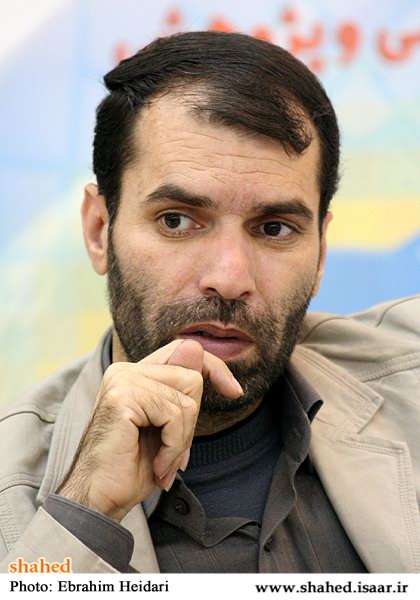Masoud Dehnamaki: “‘The Expelled’ knew how to play with red lines”?
TEHRAN, (SCIB)- Masoud Dehnamaki says that the most outstanding feature of his film “ The Expelled”? was that it knew how to play with the red lines; wherever it crossed the red line, the spiritual dialogues in it saved it.

In an exclusive interview with Shahed Cultural Information Base, Dehnamaki said that it was the spiritual dialogues of the film that saved the work’s integrity, attracted audience and helped not to cross the red line. “ I made the film knowing the public opinion of the society and the dominant outlook and the realities in it. I think the controversy around the film was natural because I had swum against the tide.”? Noted Dehnamaki who was speaking at the office of Shahed Cultural Information Base. “Going against the society’s established structures may have costs that not everyone is prepared to incur. Many people resist breaking such clichés, knowingly or unknowingly. The job is difficult and bittersweet; and this is what makes it so much fun.”? He continued. Answering the questions whether he would make the film again if he was asked to do so one more time, Dehnamaki confidently said: “ If I was supposed to start the work all over again, I would do the previous job, I may have tried to improve the technical aspect of the work, but the theme would definitely remain the same because I am sure I did the right job. “ “Anyone defines the war based on their own worldview. People, who have not been present at the war, narrate what they like about it, not what has necessarily happened. Even here, in the foundation of martyrs and veterans’ affairs, we have thousands of documents proving that not even all martyrs were the same.”? Dehnamaki considers realism the most important factor in attracting viewers to the cinema of sacred defense. “If war cinema has fans all around the world, it is because of its realism. We can not be very one-sided in the war. We are prepared to say that the army retreated in Ohod war and the prophet was left alone, but we are not prepared to admit that we retreat in a particular operation”? “We have brought spirituality to superficial levels now. Martyr Avini used to say “The honor of human beings is due to the places where they lived. It is the warrior that renders his Chafiyeh( checkered scarf that warriors wrapped around their necks) sacred. The same Chafiyeh may be used by Taliban or many other places.”? “In characterization in a story, you can not omit part of human traits. If you have a protagonist, you have to have an antagonist as well. If you want to depict a heavenly warrior, you have to depict more earthly characters as well to accentuate his greatness.”? He concluded.
In an exclusive interview with Shahed Cultural Information Base, Dehnamaki said that it was the spiritual dialogues of the film that saved the work’s integrity, attracted audience and helped not to cross the red line. “ I made the film knowing the public opinion of the society and the dominant outlook and the realities in it. I think the controversy around the film was natural because I had swum against the tide.”? Noted Dehnamaki who was speaking at the office of Shahed Cultural Information Base. “Going against the society’s established structures may have costs that not everyone is prepared to incur. Many people resist breaking such clichés, knowingly or unknowingly. The job is difficult and bittersweet; and this is what makes it so much fun.”? He continued. Answering the questions whether he would make the film again if he was asked to do so one more time, Dehnamaki confidently said: “ If I was supposed to start the work all over again, I would do the previous job, I may have tried to improve the technical aspect of the work, but the theme would definitely remain the same because I am sure I did the right job. “ “Anyone defines the war based on their own worldview. People, who have not been present at the war, narrate what they like about it, not what has necessarily happened. Even here, in the foundation of martyrs and veterans’ affairs, we have thousands of documents proving that not even all martyrs were the same.”? Dehnamaki considers realism the most important factor in attracting viewers to the cinema of sacred defense. “If war cinema has fans all around the world, it is because of its realism. We can not be very one-sided in the war. We are prepared to say that the army retreated in Ohod war and the prophet was left alone, but we are not prepared to admit that we retreat in a particular operation”? “We have brought spirituality to superficial levels now. Martyr Avini used to say “The honor of human beings is due to the places where they lived. It is the warrior that renders his Chafiyeh( checkered scarf that warriors wrapped around their necks) sacred. The same Chafiyeh may be used by Taliban or many other places.”? “In characterization in a story, you can not omit part of human traits. If you have a protagonist, you have to have an antagonist as well. If you want to depict a heavenly warrior, you have to depict more earthly characters as well to accentuate his greatness.”? He concluded.
Your Comment